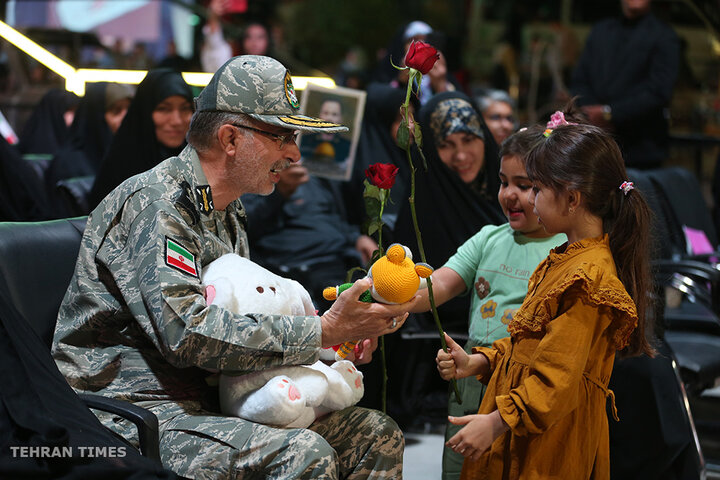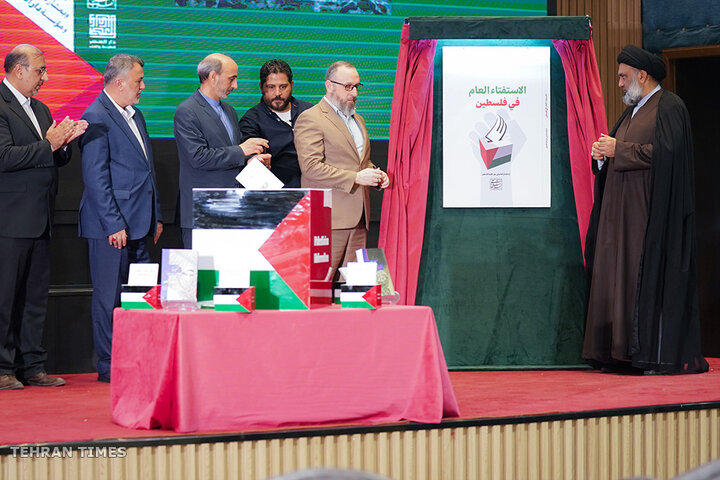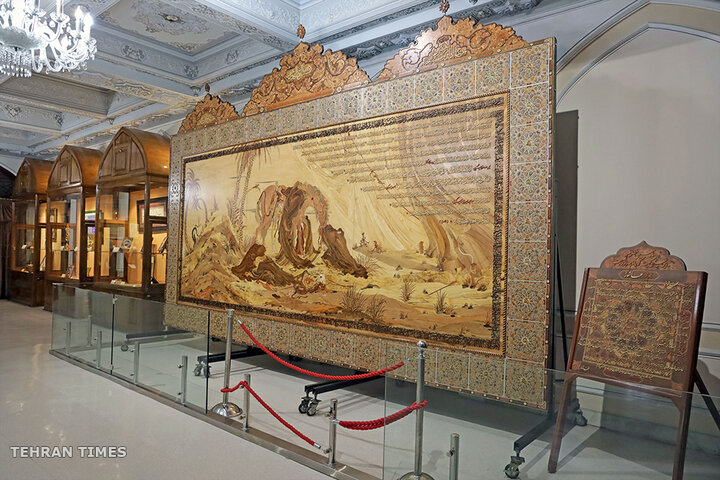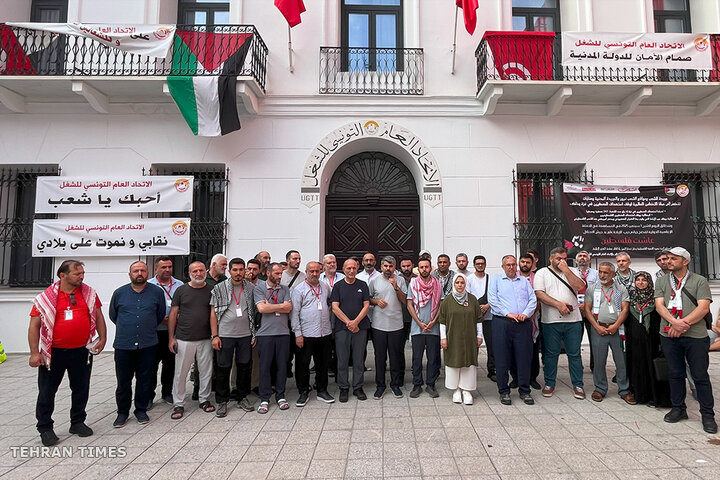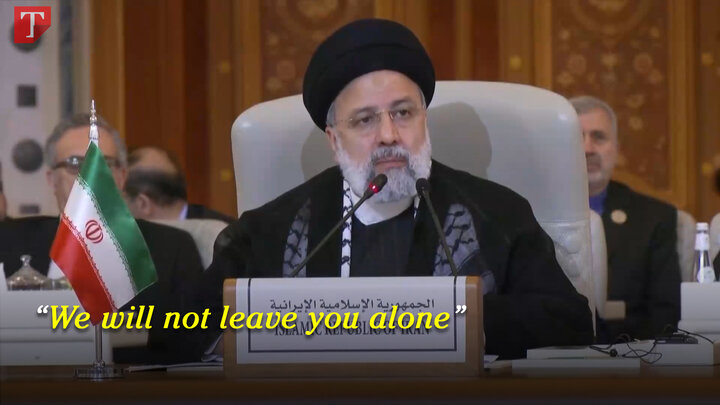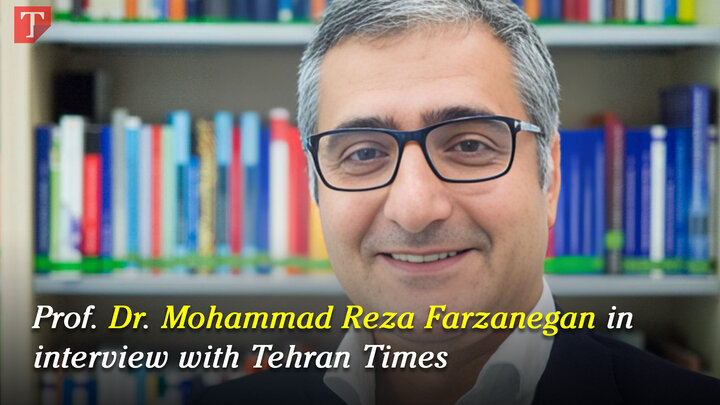-
 2025-10-11 21:38
2025-10-11 21:38
Nobel Peace Prize 2025: A fusion of dynamite’s memory, fresh genocide, and coup dream
By Faramarz Kouhpayeh
TEHRAN – For years, many have argued that the Nobel Peace Prize has become a tool of Western states, used to promote opposition figures capable of replacing governments at odds with the West.
-

By Wesam Bahrani
Driven by Venezuela’s oil riches, Trump intensifies clash with Maduro government
TEHRAN – Tensions between Caracas and Washington are mounting amid the White House’s continued push for regime change in Venezuela.
-

By Garsha Vazirian
Gaza truce’s fault lines: Disarmament, sovereignty, and power
TEHRAN – As tens of thousands of Palestinians returned to northern Gaza on Friday, the fragile relief of the ceasefire was burdened by political ultimatums—a reminder that even a pause in violence cannot erase the deeper struggle over power and sovereignty.
-

By Silvina Pachelo
Carlos Trotta says colonization is “geographical” and “mental”
BUENOS AIRES - The Tehran Times has interviewed Carlos Trotta, an Argentine doctor and volunteer with Doctors Without Borders, who has dedicated his life to accompanying those suffering the most extreme consequences of inequality, violence, and injustice.
-
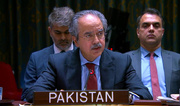
By Sahar Dadjoo
Pakistan sees UNSC snapback as setback to dialogue, expert Says
Dr. Dost Barrech examines legal, political, and economic challenges posed by UN sanctions on Iran
TEHRAN- As snapback sanctions under UN Security Council Resolution 2231 are reactivated, the impact on regional diplomacy, trade, and security extends well beyond Iran. For Pakistan—a neighbor closely connected to Iran through geography, commerce, and security—the stakes could be somewhat significant.
-

By Sondoss Al Asaad
Lebanon foils high-risk Israeli terror operation in major security success
BEIRUT — Amid the escalating challenges facing Lebanon, the General Directorate of General Security’s announcement of the dismantling of a foreign-run spy network working for the Israeli enemy marked a significant step.
Politics
-
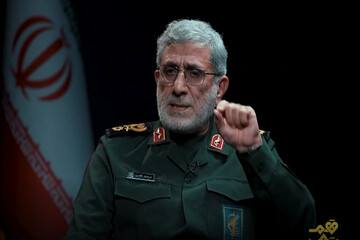
Rumors about assassination of General Qaani denied
TEHRAN – Reports circulating on certain social media accounts linked to the Israeli regime alleging the assassination of Commander of the Islamic Revolution Guards Corps (IRGC)’s Quds Force Brigadier General Esmaeil Qaani have been categorically denied.
-
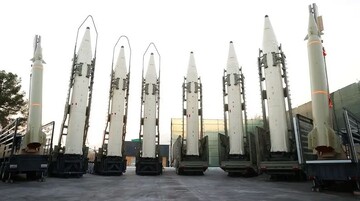
Iran capable of exporting missiles: Top Iranian Cmdr.
TEHRAN – A senior Iranian military commander says the country has reached self-sufficiency and developed the capability to export its products in sensitive military areas, adding Iran is now is capable of exporting missiles to other countries.
-
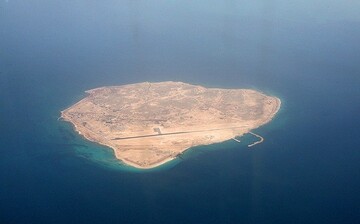
Sovereignty, history, and geopolitics at the heart of the Persian Gulf
MADRID – The islands of Greater Tunb, Lesser Tunb, and Abu (Bu) Musa, strategically located in the Strait of Hormuz, are far more than simple stretches of land surrounded by water: they represent the intersection of history, sovereignty, and regional geopolitics.
Sports
-

Iran water polo runners-up at 2025 Asian Aquatics Championships
TEHRAN – Iran’s men’s water polo team lost to China 16-15 on Saturday in the final match of the 2025 Asian Aquatics Championships.
-

Iran vs Russia: A tactical test that exposes gaps in creativity
TEHRAN - Iran’s 2–1 defeat to Russia should be seen less as a result and more as a tactical lesson. Facing a disciplined European side, Team Melli had the chance to measure themselves against World Cup-level opposition.
-

Cairo 2025: Iran seize first ever women world champion
TEHRAN - Atiyeh Sadat Hosseini makes history winning Iran’s first-ever women’s gold in World Para Powerlifting Championships, triumphing in women’s up to 61kg category.
Culture
-

Iranian short flick “Like A Secret” wins at India’s Pink City International Short Film Festival
TEHRAN – The Iranian short film “Like A Secret” by Saeed Zamanian won an award at the 12th Pink City International Short Film Festival, which was held in Jaipur, India, from October 1 to 12.
-
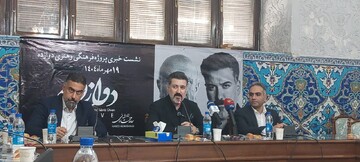
Cultural initiative “Twelve” launched to support charity through art, poetry
TEHRAN- “Twelve,” a cultural and artistic multimedia project, has been launched to support the charitable efforts of the Kahrizak Charity Foundation, the organizers announced during a press conference held in Tehran on Saturday.
-
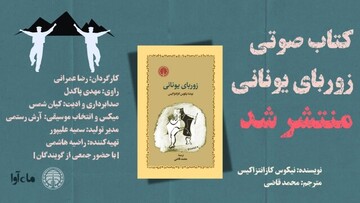
Persian audiobook of “Zorba the Greek” released
TEHRAN – The Persian audiobook of the 1946 novel “Zorba the Greek” written by Nikos Kazantzakis has been released.
Economy
-
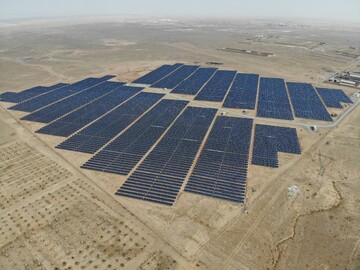
Pezeshkian inaugurates 250MW of new solar power plants across Iran
TEHRAN – President Masoud Pezeshkian inaugurated 250 megawatts (MW) of new solar power plants across the country via a video conference, and ordered the beginning of the construction on another 400 MW project in Tehran on Saturday.
-
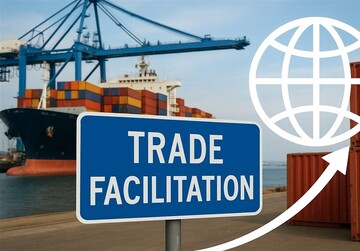
Economy Ministry pushes bold customs overhaul to speed up trade flow
TEHRAN – In response to the country’s evolving economic conditions, Iran’s Ministry of Economic Affairs and Finance has launched a comprehensive initiative to streamline customs procedures and deliver on its pledge to reduce cargo clearance time to three days. The plan includes both regulatory revisions and a new legislative proposal soon to be submitted to Parliament.
-
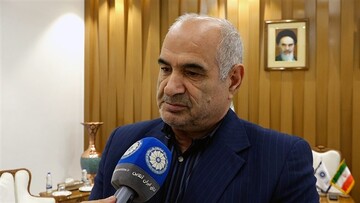
Govt. extends industry support package by 1 month
TEHRAN – Abdollah Mohajer Darabi, a member of the board of the Iran Chamber of Commerce, Industries, Mines and Agriculture (ICCIMA), announced a one-month extension for implementing the government’s industrial support package, following approval from President Masoud Pezeshkian.
Society
-
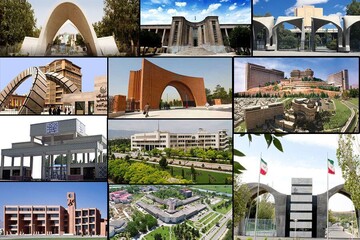
Iranian universities increase by 20% in THE rankings
TEHRAN – The Times Higher Education World University Rankings 2026 has placed 101 Iranian universities among the top institutions, up from 85 universities in 2025.
-
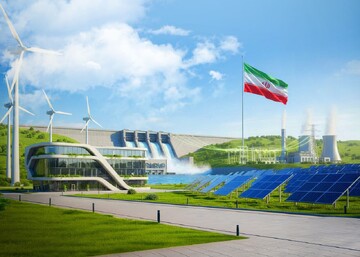
‘Developed Iran’ to focus on water, clean energy
TEHRAN – The second international event titled ‘Developed Iran’ will be held with a focus on water, electricity, and renewable energies on November 5.
-

Oral, dental health campaign underway in elementary schools
TEHRAN – The health ministry kicked off a week-long national oral and dental campaign in elementary schools on Saturday to raise awareness about the fundamental role of oral and dental health in overall health.
Tourism
-
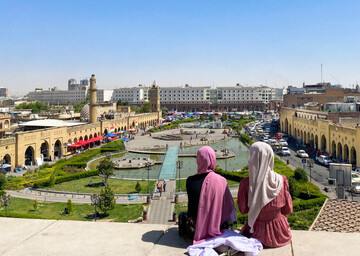
Iranians top list of pilgrimage tourists to Iraq
TEHRAN - Iranians remain the largest group of religious tourists visiting Iraq, particularly to the holy city of Karbala.
-
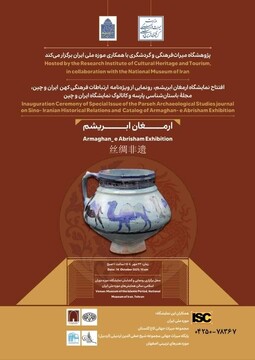
Tehran to host exhibit dedicated to Iranian, Chinese arts
TEHRAN — An exhibition, featuring a selection of archaeological and artistic treasures from Iran and China, will officially open at the National Museum of Iran on Tuesday, October 14.
-

South Korean envoy visits West Azarbaijan, discusses tourism ties
TEHRAN — South Korea’s ambassador to Iran, Kim Jun-pyo, has paid a visit to West Azarbaijan, discussing ways to expand cultural and tourism ties with the northwestern Iranian province.
International
-

Driven by Venezuela’s oil riches, Trump intensifies clash with Maduro government
TEHRAN – Tensions between Caracas and Washington are mounting amid the White House’s continued push for regime change in Venezuela.
-

Gaza truce’s fault lines: Disarmament, sovereignty, and power
TEHRAN – As tens of thousands of Palestinians returned to northern Gaza on Friday, the fragile relief of the ceasefire was burdened by political ultimatums—a reminder that even a pause in violence cannot erase the deeper struggle over power and sovereignty.
-

Lebanon foils high-risk Israeli terror operation in major security success
BEIRUT — Amid the escalating challenges facing Lebanon, the General Directorate of General Security’s announcement of the dismantling of a foreign-run spy network working for the Israeli enemy marked a significant step.
Video Comment
-
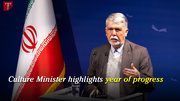
Culture minister highlights year of progress in arts, global image enhancement
-

Gazan Journalists attacked by Israel
-

Brother of Iranian scientist murdered in Israeli strike speaks out
-

Footage shows Israel hit a kindergarten in Tehran
-

Delegates and ambassadors from 28 countries visited the IRIB building
Most Viewed
-
US and Israel go after Iran's allies, showing no sign of de-escalation
-
Bloodied hands, misplaced laurels: Why neither Trump nor Machado deserves praise
-
Gaza breathes
-
Ayatollah Khamenei encourages innovative approaches to teach and promote prayer
-
US, Israel sought to trigger internal chaos through terror plots: Iran intelligence minister
-
Kabul bombings heighten Pakistan–Afghanistan rift
-
South Korean ambassador attends 7th Asian Championships of Zurkhaneh Sports opening ceremony
-
WMBD: create a world where birds, people thrive together
-
Russia beat Iran in friendly
-
Gaza truce deal not end of road; criminals should be held accountable: Iran
-
North Korean Embassy in Tehran marks 80th anniversary of Workers' Party founding
-
Marriage 2.5 times divorce in 6 months
-
Trump’s impasse against economic structures
-
Iran water polo into 2025 Asian Aquatics Championships semis
-
International conference launches in Tehran to denounce Israeli-US assassination of scientists

